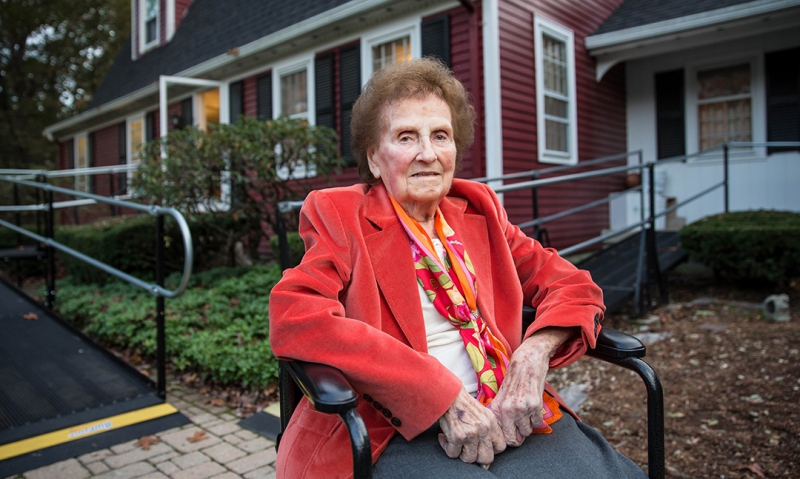
Helen Kennedy Ryan, the daughter of Boys State co-founder Hayes Kennedy, is proud of her father's legacy.
There’s an array of family photos in the living room of Helen Kennedy Ryan’s home in Walpole, Mass., a display of happy memories preserved in time.
Ryan cherishes those memories, and she cherishes the ones not on display, like the Saturday nights when she was a child and her father, Hayes Kennedy, came home from a week away at Boys State.
“Dad would go from Saturday to Saturday, then he’d come home late Saturday and we all sat in the kitchen and listened to his stories about things that went on, people that came in and talked (at the program). … The one thing we loved is when he came back on Saturday night, he brought extra candy from the commissary. We thought it was great,” she laughed.
Hayes Kennedy was one of the co-founders of The American Legion Boys State program. He and Harold Card organized the first Boys State at the Illinois State Fairgrounds in Springfield in 1935.
“It’s my understanding that both Harold Card and my father were on the National Americanism Committee, and they were at a meeting in New York, I believe, and driving back, they saw these camps set up, Young Pioneers, and they looked into it and found out it was basically the Communists, that gave them the thinking they could get the Legion to get involved in a program to teach our government to the students,” Ryan recalled.
The Young Pioneer Camps of the 1930s were aimed at teaching high school age boys that democracy had outworn its usefulness and should be replaced by Communism. Seeing those camps prompted Kennedy, the Illinois Department Americanism chairman and a law instructor at Loyola University Law School, and Card, the Illinois Department Boy Scout chairman and a high school educator, to come up with a program to counter the Young Pioneers.
The first Boys State program was held in Springfield in June 1935, with 217 young men attending. It’s since grown to include programs in every state but Hawaii, along the way spawning Girls State, sponsored by The American Legion Auxiliary, and Boys Nation and Girls Nation, which sends two representatives from each state program to Washington, D.C., for a week to learn about the federal government process.
“I do remember, for the first few years, my mother and my sister and I went down for a few days to stay at the home of Harold Card. And then we went in the day the governor of Boys State was installed, the governor of Illinois came and installed him, and we went down for that program and met him and watched that being done. That was probably in ’36, because ’35 was the first year and it was really just getting organized then,” Ryan recalled.
Only one of her brothers, Hayes, actually attended Boys State, but one of her other brothers, Dan, worked in the canteen at Boys State. And her third brother, Jim, would have gone, but he was planning to be a doctor and got a hospital job that prevented him from attending.
Still, the program had an impact. Ryan said Jim, who later worked in the admissions department at Loyola, would question prospects who included Boys State on their resume.
“He said, ‘If they put that down, I’d like to know what they thought about it,’” she said.
Ryan recalled the early years of the program in Illinois, when trains carried the attendees from Chicago to Springfield. The train would stop in Joliet, where the family lived, and Legionnaires would get off the train to say hi to Ryan’s mother.
“We just consider Boys State a part of our life,” she said.
It’s a tradition that’s continued. Ryan’s son, Bob, attended Massachusetts Boys State, and last spring, his son, Patrick, became the first great-grandson of Hayes Kennedy to attend the program, also in Massachusetts.
“I think it had to be a pretty sound program through the years to still have people supporting it and being interested in what’s going on. It’s evolved as those things are going to do,” she said. “I feel very glad that my father was able to be involved in something that could go this many years and is still going. …
“He would have been very proud to know it’s continued and know that his grandson and great-grandson had a chance to participate.”
- Boys Nation

